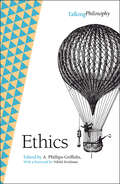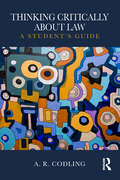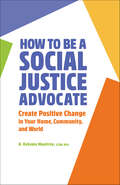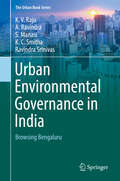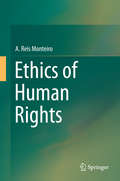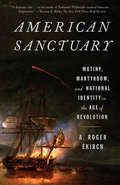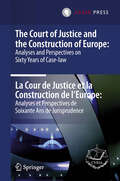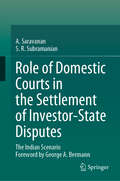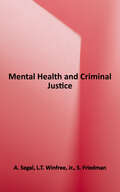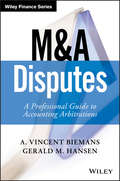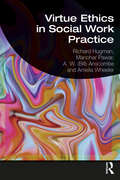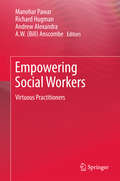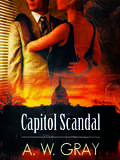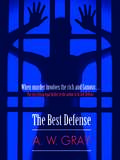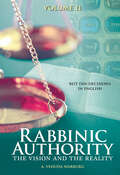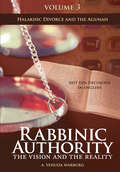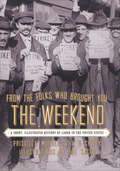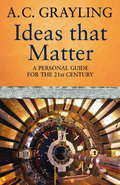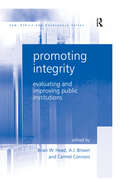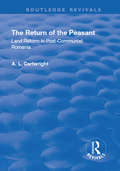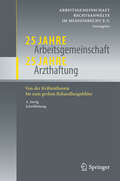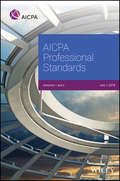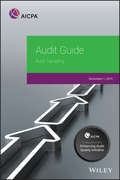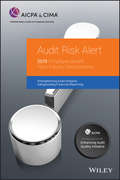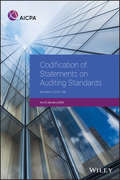- Table View
- List View
Ethics
by A. Phillips-Griffiths Nikhil KrishnanEthical questions are often associated with practical dilemmas: questions in morality, in other words. This volume, by contrast, asks questions about morality: what it is, and to what it owes its precarious authority over us. The focus on metaethics is sustained throughout, via a wide range of philosophical perspectives. Distinguished luminaries who include R. M. Hare and Bernard Williams address keenly debated issues such as what constitutes morality in politics; the relationship between education and ethical standards; and whether or not morality can indeed be defined at all. As Nikhil Krishnan writes in his elegant Foreword, 'The plain-speaking, essayistic grace of these essays, speaks nevertheless of the possibility of moral philosophy, written with an eye to a listener, very possibly not a professional philosopher, who has the right to say, ''This is all very well, your neat little theory, but it doesn't ring true. Things are more complicated than that.'''
Thinking Critically About Law: A Student's Guide
by A. R. CodlingSo you’ve arrived at university, you’ve read the course handbook and you’re ready to learn the law. But is knowing the law enough to get you the very best marks? And what do your lecturers mean when they say you need to develop critical and analytical skills? When is it right to put your own views forward? What are examiners looking for when they give feedback to say that your work is too descriptive? This book explores what it means to think critically and offers practical tips and advice for students to develop the process, skill and ability of thinking critically while studying law. The book investigates the big questions such as: What is law? and What is ‘thinking critically’? How can I use critical thinking to get better grades in assessments? What is the role of critical thinking in the work place? These questions and more are explored in Thinking Critically About Law. Whether you have limited prior experience of critical thinking or are looking to improve your performance in assessments, this book is the ideal tool to help you enhance your capacity to question, challenge, reflect and problematize what you learn about the law throughout your studies and beyond.
How to Be a Social Justice Advocate: Create Positive Change in Your Home, Community, and World
by A. Rahema MooltreyTake action to promote social justice with help from this practical guideSocial justice is about uplifting and empowering underserved and marginalized communities impacted by systems of oppression. While believing in equity and fairness is easy, taking action and doing your part requires work. This book is filled with practical, real-world advice that shows you how to serve and support your community through activism. You'll discover concrete steps you can take in 4 key areas that determine well-being and livelihood for all groups of people: education, economic stability, health, and safety.This standout among social justice books encourages you to:Get involved—Examine your intentions and unconscious biases, take stock of your strengths and interests, and consider important historical contexts when involving yourself in social justice work.See justice in action—Read relatable stories about real-life social justice wins to help inspire your own activism.Engage with others—Social justice is only possible when in community with others. Find tips on involving friends, family, and other community members in respectful and sustainable ways.Promote social justice and help create meaningful change with How to Be a Social Justice Advocate.
Urban Environmental Governance in India: Browsing Bengaluru (The Urban Book Series)
by K. V. Raju S. Manasi A. Ravindra K. C. Smitha Ravindra SrinivasThis book aims to identify the challenges presented by current urban environmental governance practices in fast growing Indian cities, to propose changes to the current governance implementation strategies, and to explore the best practices to achieve sustainable urban models through Indian and global perspectives. With a focus on the city of Bengaluru, the book draws on extensive reviews of literature and data to present current trends and statuses of environmental resource use in growing urban centres of India.The book analyzes the situations that impact urban environmental governance decisions and outcomes and proposes solutions to address these issues for long-term sustainability. Policy makers, researchers, academics and development practitioners in environmental politics and urban governance will find this work of great interest.The book starts by examining different urban environmental threats on global and domestic levels, and provides evidence for the effectiveness of sustainable efforts to curb the impact of crisis-like scenarios. Then the book discusses the role of institutional regimes in influencing urban environmental outcomes through policies, and analyzes the role of various actors in the evolution of urban environmental governance from a legal perspective at global and local scales. In the final chapters, the book explores the trends and status of environmental resource management in Bangalore Metropolitan Area (BMA), and examines the dynamics of local institutions and governance structures for regulating environmental governance for promoting effective sustainable environmental governance in Bengaluru.
Ethics of Human Rights
by A. Reis MonteiroThis volume focuses on the ethical significance of human rights, aiming at contributing to a universal culture of human rights with deep roots and wide horizons. Its purpose, scope and rationale are reflected in the three-part structure of the manuscript. Part I has a broad introductory historical, theoretical and legal character. Part II submits that an Ethics of Human Rights is best understood as an Ethics of Recognition of human worth, dignity and rights. Moreover, it is argued that human worth consists in the perfectibility of the human species, rooted in its semiotic nature, to be accomplished through the perfecting of human beings, for which the right to education is key. In Part III, the main legal and political outcomes of the Human Rights Revolution are described and answers to the most lasting and common criticisms of human rights are provided. To conclude, the human stature of the Big Five drafters of the Universal Declaration of Human Rights is profiled and the priority that should be recognized to human rights education is highlighted. Some appendices supplement the manuscript. While making a case for the high value and liberating power of the idea and ideal of human rights, objections, controversies and uncertainties are not at all overlooked and emerging issues are explored. The diversity of content of this volume meets many needs of the typical syllabus for a human rights course.
American Sanctuary: Mutiny, Martyrdom, and National Identity in the Age of Revolution
by A. Roger EkirchFrom “one of the most wide-ranging and imaginative historians in America today; there is no one else quite like him in the profession” (Gordon S. Wood)—a dazzling and original work of history. A. Roger Ekirch’s American Sanctuary begins in 1797 with the bloodiest mutiny ever suffered by the Royal Navy—on the British frigate HMS Hermione, four thousand miles from England’s shores, off the western coast of Puerto Rico. In the midst of the most storied epoch in British seafaring history, the mutiny struck at the very heart of military authority and at Britain’s hierarchical social order. Revolution was in the air: America had won its War of Independence, the French Revolution was still unfolding, and a ferocious rebellion loomed in Ireland, with countless dissidents already arrested. Most of the Hermione mutineers had scattered throughout the North Atlantic; one of them, Jonathan Robbins, had made his way to American shores, and the British were asking for his extradition. Robbins let it be known that he was an American citizen from Danbury, Connecticut, and that he had been impressed into service by the British. John Adams, the Federalist successor to Washington as president, in one of the most catastrophic blunders of his administration, sanctioned Robbins’s extradition, according to the terms of the Jay Treaty of 1794. Convicted of murder and piracy by a court-martial in Jamaica, Robbins was sentenced by the British to death, hauled up on the fore yardarm of the frigate Acasta, blindfolded with his hands tied behind his back, and hanged. Adams’s miscalculation ignited a political firestorm, only to be fanned by news of Robbins’s execution without his constitutional rights of due process and trial by jury. Thomas Jefferson, then vice president and leader of the emergent Republican Party, said, “No one circumstance since the establishment of our government has affected the popular mind more.” Congressional Republicans tried to censure Adams, and the Federalist majority, in a bitter blow to the president, were unable to muster a vote of confidence condoning Robbins’s surrender. American Sanctuary brilliantly lays out in full detail the story of how the Robbins affair and the presidential campaign of 1800 inflamed the new nation and set in motion a constitutional crisis, resulting in Adams’s defeat and Jefferson’s election as the third president of the United States. Ekirch writes that the aftershocks of Robbins’s martyrdom helped to shape the infant republic’s identity in the way Americans envisioned themselves. We see how the Hermione crisis led directly to the country’s historic decision to grant political asylum to refugees from foreign governments—a major achievement in fulfilling the resonant promise of American independence, as voiced by Tom Paine, to provide “an asylum for mankind
The Court of Justice and the Construction of Europe: Analyses and Perspectives on Sixty Years of Case-law - La Cour de Justice et la Construction de l'Europe: Analyses et Perspectives de Soixante Ans de Jurisprudence
by E. Levits A. Rosas Y. Bot Court of Justice of the European UnionThis book is a contributed volume published by the Court of Justice of the European Union on the occasion of its 60th anniversary. It provides an insight to the 60 years of case-law of the Court of Justice and its role in the progress of European Integration. The book includes contributions from eminent jurists from almost all the EU Member States. All the main areas of European Union are covered in a systematic way. The contributions are regrouped in four chapters dedicated respectively to the role of the Court of Justice and the Judicial Architecture of the European Union, the Constitutional Order of the European Union, the Area of EU Citizens and the European Union in the World. The topics covered remain of interest for several years to come. This unique book, a "must-have" reference work for Judges and Courts of all EU Members States and candidate countries, and academics and legal professionals who are active in the field of EU law, is also valuable for Law Libraries and Law Schools in Europe, the United States of America, Latin America, Asia and Africa and law students who focus their research and studies in EU law.
Role of Domestic Courts in the Settlement of Investor-State Disputes: The Indian Scenario
by A. Saravanan S.R. SubramanianThis book addresses the interactions between the domestic courts and the international investment arbitral tribunals, one of the most pressing issues confronting both domestic legal systems and the international legal system. It deals with the core issues inherent in the above interactions, especially with regard to countries outside the ICSID system. It contrasts this narrative with the position under classical international investment law, where national courts are assigned a very specific and minimalistic role in the process of investment disputes settlement. For this purpose, the book chooses India, which follows the non-ICSID model, as the major point of focus and considers both domestic judicial decisions and investment arbitral decisions for critical analysis. The ICSID Convention grants limited powers to domestic courts to issue provisional measures and to enforce ICSID awards. As the central theme of the book lies at the intersection of domestic law and international law, the work is indispensable for any scholar working in the areas of general international law, international investment law, international economic law, law and economics, international dispute settlement, or international law in domestic courts, as well as domestic judges and international arbitrators. Further, as the subject matter has great implications for both domestic and global governance, it will benefit civil servants, opinion leaders, policy planners and subject experts in economics, the political economy and regional studies, to name a few.Excerpt from the Foreword:“One of the great merits of this book is that... It looks at bilateral investment treaties themselves to probe more deeply into the role of national courts in investment arbitration... This masterful book fills a major void as a resource in Indian international arbitration law. But is also the prototype of what any serious inquiry into the judicial role in investor-State arbitration in any jurisdiction should look like…”- George A. Bermann, Walter Gellhorn Professor of Law and Jean Monnet Professor of European Union Law, Columbia Law School, USA
Mental Health and Criminal Justice
by Jr. A. Segal L. T. Winfree S. FriedmanIn this student-friendly text, a team of respected scholars balances practical knowledge of how the mental healthcare system operates in conjunction with the criminal justice system, with an analytical framework that looks at how the quality of that collaboration is reflected in the issues, processes, and outcomes of both institutions. Professors and students will benefit from an accessible new text that informs and explores: - The role of mental healthcare law and procedure in the criminal justice system - How mentally ill clients are processed through the criminal justice system - Mental healthcare terms, resources, and treatment programs - Contemporary issues in mental health and criminal justice, such as the treatment of mentally ill juveniles inside the criminal justice system, and lack of full access to mental healthcare for at-risk groups - Discussion of systemic interface and entropy, two central themes to guide student analysis of issues and examples drawn from real life Mental Health and Criminal Justice is designed with a wealth of features for study and review, including: - Learning Objectives - Framing the Issues - Prologues and Epilogues that frame issues and provide vivid examples - Key Terms, highlighted in the text and defined in the Glossary - Text boxes that expand on points of interest - Summary and Chapter Review Questions at the end of each chapter
M&A Disputes: A Professional Guide to Accounting Arbitrations
by A. Vincent Biemans Gerald M. HansenNavigate M&A accounting arbitrations with insider perspective M&A Disputes takes you inside the dispute resolution process to help you put together the many "moving parts" necessary to obtain a successful outcome. With deep insight from experts in the field—including valuable advice from the arbitrator's perspective—this book guides you through the entire process to explore the variables at work. The high volume of M&A transactions makes post-closing price adjustment provisions and accounting arbitrations a critical part of doing business. Yet, the field is opaque to non-practitioners and important issues can be easily misunderstood without specific knowledge and experience. A resulting award can make or break a transaction; an intimate understanding of the process's inner working can help you plan your position to the greatest advantage. This book explores the many factors that that contribute to a successful resolution across the entire transaction life cycle from contract negotiation through the dispute phase including due diligence, determination of the target net working capital, conception and closing of the purchase agreement, post-closing negotiation and dispute resolution, the impact of accounting practices, guidance, and documentation as well as relevant auditing concepts, and various facts and circumstances surrounding the target business and the transaction that need to be considered. M&A volume remains high and continues to result in large numbers of current and future post-closing M&A disputes. Clients rely on their attorneys and advisers to guide them through the process and counsel them toward a positive outcome. Those professionals will find that M&A accounting arbitrations carry a range of distinctions that require a specialized knowledge base to navigate correctly. This book provides real-world guidance from experts in the field, with invaluable insight for every stage of the process. Walk through the entire dispute resolution process from arbitrator selection through final award Understand how M&A agreement provisions impact the awarded amount as well as the options available to limit the scope of potential disputes and the "gaming" of the post-closing process by the counterparty Understand the nature of accounting estimates and guidance, their interaction with accounting arbitrations, and how to synthesize facts, circumstances, and GAAP into a persuasive argument to present to the accounting arbitrator Get situation-specific advice for different types of transactions Learn practitioner "dos" and "don'ts" from the arbitrator's perspective M&A Disputes provides transaction parties and their representatives an inside view at the transaction and commonly disputed items through the eyes of the arbitrator to provide them with uniquely valuable insight. In addition to being an invaluable tool for practitioners appearing before an accounting arbitrator, M&A Disputes also provides advice to would-be and experienced arbitrators alike to successfully resolve disputes that can be significant and complex.
Virtue Ethics in Social Work Practice
by Manohar Pawar Richard Hugman A. W. Anscombe Amelia WheelerUsing evidence from research with practitioners, integrated with wider material about virtue ethics in the helping professions, this book explores important types of virtue that are central to developing and sustaining excellence in social work. Comprised of ten chapters and drawing on extensive research with social workers as well as wider debates and analysis, the discussion carefully concentrates on everyday experiences and achievements. This approach enables the book to avoid an idealized and prescriptive approach by making clear that virtues vary between contexts and individuals, while at the same time clearly marking out qualities and characteristics of social work that are foundational to the development of practitioners and of the profession as a whole. It will be required reading for students on all BSc/BSW and MSc/MSW courses on professional ethics or preparation for practice. It will also be of interest to practitioners in other professions, including human services, health, education and social development or development studies.
Empowering Social Workers
by Andrew Alexandra Manohar Pawar A. W. Bill Anscombe Richard HugmanThis book demonstrates the central role of ethical character in effective social work practice. Showcasing select biographies of social workers, it reveals how skilled practitioners have developed such core virtues as compassion, love, commitment, prudence, respect for human dignity and a critical sense of social justice through the course of their working lives, and how they apply these virtues in a wide variety of settings and situations to enhance the well-being of the people and communities they work with. As such, the book offers a powerful and inspiring resource to help educators, students and practitioners understand the unbreakable link between what social workers and other social welfare and social development professionals do and who they are, and thereby cultivate core qualities that should be promoted. "Pawar, Hugman, Alexandra and Anscombe have found a novel and creative way to explore virtues in social work by examining the career contributions of a group of social work practitioners engaged in 'virtuous action'. Their stories are inspiring and they provide much-needed role models for students and practitioners embarking on empowering practice" - Dr. Mel Gray, Professor of Social Work, The University of Newcastle. New South Wales, Australia. "In an age where the virtues of truth, cooperation and "doing the right thing" are increasingly being eroded in public life, this book serves as both an inspiration and invaluable resource to all social work practitioners seeking to reflect on, and improve their practice" - Dr. Martin Ryan, Social Worker, Counsellor/Community Educator, Jesuit Social Services, Melbourne. "The editors are to be commended for examining the virtuous characters of these ten professional social workers. The use of detailed biographies is an innovative and important approach which helps us to appreciate just what a tremendous impact the virtues can have. " - Dr. Christian B. Miller, A. C. Reid Professor of Philosophy, Director, The Character Project, Wake Forest University, USA.
Capitol Scandal
by Rebecca Mitchell A. W. GrayThe crime: murder. The accused: a wealthy Texas congressman. The victim: a young intern with whom he was having an affair. Attorney Sharon Hays is reluctant to defend this charismatic politician--for highly personal reasons. Now she must either withdraw from the case, confessing to the secrets of her own past, or remain silent and defend a man she has every reason to hate.
The Best Defense
by Rebecca Mitchell A. W. GrayAt a gala event in downtown Dallas, lawyer Sharon Hays runs into an old friend turned Hollywood star who is in town promoting her most recent film with her current lover--a Hollywood bad boy. But when a brutally murdered corpse is discovered in her posh hotel suite, the starlet finds herself accused of the crime. Sharon is all too eager to take up her friend's defense, but the facts of what happened that night in the hotel room are far from clear. Sharon's friend claims she never went back to the room, and her lover had supposedly blacked out. Soon Sharon finds herself in the media spotlight defending America's sweetheart.
Rabbinic Authority, Volume 2: The Vision and the Reality, Beit Din Decisions in English, Volume 2
by A. Yehuda WarburgVolume 2 of the only English books on rabbinic authority In this second volume of Rabbinic Authority, Rabbi Warburg presents new rabbinical court arbitration decisions in English. He is the first rabbinic arbitrator to publish piskei din (decisions) on cases in Jewish civil law. It is important that those who service the institution of a beit din (a Jewish court) know the inner dynamics and reasoning of those who issue rulings. This volume focuses on a number of topics, such as the halakhic identity of an investment broker, the propriety of a civil will, contemporary issues relating to domestic violence, and the role of a rabbinical advocate in the beit din process.
Rabbinic Authority, Volume 3: The Vision and the Reality, Beit Din Decisions in English - Halakhic Divorce and the Agunah
by A. Yehuda WarburgIn the third volume of his groundbreaking series on rabbinic authority in English, Rabbi Warburg discusses the ramifications of a Jewish divorce. In this well-composed monograph, Rabbi Warburg primarily focuses on the case of the modern day agunah, a wife who is unable to get divorced due to her husband's recalcitrance. He addresses the various techniques, such as obligating the giving of a get (Jewish divorce document), finding relief for an agunah who signed an exploitative agreement, and listing different avenues to void a marriage (bitul kiddushin) used by the rabbinical court. This issue is of some controversy in the Jewish community, and there is heated debate about it.
From the Folks Who Brought You the Weekend: An Illustrated History of Labor in the United States
by Priscilla Murolo A.B. ChittyNewly updated: &“An enjoyable introduction to American working-class history.&” —The American Prospect Praised for its &“impressive even-handedness&”, From the Folks Who Brought You the Weekend has set the standard for viewing American history through the prism of working people (Publishers Weekly, starred review). From indentured servants and slaves in seventeenth-century Chesapeake to high-tech workers in contemporary Silicon Valley, the book &“[puts] a human face on the people, places, events, and social conditions that have shaped the evolution of organized labor&”, enlivened by illustrations from the celebrated comics journalist Joe Sacco (Library Journal). Now, the authors have added a wealth of fresh analysis of labor&’s role in American life, with new material on sex workers, disability issues, labor&’s relation to the global justice movement and the immigrants&’ rights movement, the 2005 split in the AFL-CIO and the movement civil wars that followed, and the crucial emergence of worker centers and their relationships to unions. With two entirely new chapters—one on global developments such as offshoring and a second on the 2016 election and unions&’ relationships to Trump—this is an &“extraordinarily fine addition to U.S. history [that] could become an evergreen . . . comparable to Howard Zinn&’s award-winning A People&’s History of the United States&” (Publishers Weekly). &“A marvelously informed, carefully crafted, far-ranging history of working people.&” —Noam Chomsky
Ideas That Matter: A Personal Guide for the 21st Century
by A.C. GraylingLeading philosopher's guide to the ideas that will shape the 21st century'Ideas are the cogs that drive history, and understanding them is half way to being aboard that powerful juggernaut rather than under its wheels'. This is a book that celebrates the power of ideas: thought can, and does, change the world. And, in turn, ideas evolve. Fundamentalism, environmentalism and bioethics are defining our future just as Marxism, feminism or existentialism have influenced our present. So what do we need to know as we move into the 21st century? More than a simple reference work, this is A.C. Grayling's personal and heartfelt guide to the ideas, past and present, that shape our world. Covering religion, philosophy, scientific theory and political movements, each alphabetically ordered entry illuminates, elucidates and provokes. Written with Grayling's customary fire and erudition, the result is a book that aims both to arm readers with knowledge and engage them in philosophical debate.
Promoting Integrity: Evaluating and Improving Public Institutions (Law, Ethics and Governance)
by A.J. Brown Carmel ConnorsWhat are the right institutional settings and strategies for ensuring honesty and accountability in public life? How do these settings and strategies relate to one another, and how do we know what is working and what is missing from the whole complex tapestry? Taking Australia as a case study that is relevant to all countries where public integrity is an issue, this book offers some new answers to these larger questions. The collection reviews a variety of existing efforts to understand, 'map' and evaluate the effectiveness of integrity policies and institutions, not just in the government sector but across all the major institutions of modern society. It will be of interest to those in governance, politics, law and public policy.
The Return of the Peasant: Land Reform in Post-Communist Romania (Routledge Revivals)
by A.L. CartwrightThis title was first published in 2001. Of the many far reaching issues facing post-communist states in the wake of the collapse of communist rule, few have continued to pose such dilemmas for future progress as the land question. This book provides a historical account of national and local attempts to reform land ownership and agricultural production and in particular, the way in which land law defined the land question. Using archive work to demonstrate the selectivity of the law in righting wrongs and case studies to illustrate the practical obstacles to attempts at reconstructing the pre-communist system, this work is a critical and detailed portrait of the forces that stand to shape the future of post-communist rural life.
25 Jahre Arbeitsgemeinschaft - 25 Jahre Arzthaftung: Von der Krähentheorie bis zum groben Behandlungsfehler
by AG Rechtsanwälte im Medizinrecht e.VDie Arbeitsgemeinschaft Rechtsanwälte im Medizinrecht e. V. wurde 1986 von Rechtsanwälten gegründet mit dem Ziel, Mitglieder auf medizinischem und medizinrechtlichem Gebiet weiterzubilden, an der Weiterentwicklung des Rechtsgebiets mitzuwirken und öffentlich u. a. für eine Verbesserung des Arzt-Patienten-Verhältnisses einzutreten. Die Festschrift, die zum 25-jährigen Jubiläum der Arbeitsgemeinschaft herausgegeben wird, enthält Beiträge namhafter Autoren zum Thema Arzthaftungsrecht.
AICPA Professional Standards 2019, Volumes 1 and 2: Cch#04585404 (AICPA)
by AICPAUpdated as of July 1, 2019, this two-volume set is a comprehensive source of professional standards and interpretations issued by the AICPA, such as auditing and attestation, accounting and review services pronouncements, along with the AICPA Code of Professional Conduct and Bylaws. Standards and related interpretations, to help you apply the standards in specific circumstances, are arranged by subject with amendments noted, superseded portions deleted, and conforming changes reflected. New to this edition: Statement on Auditing Standards (SAS) No. 134, Auditor Reporting and Amendments, Including Amendments Addressing Disclosures in the Audit of Financial Statements SAS No. 135, Omnibus Statement on Auditing Standards—2019 SAS No. 136, Forming an Opinion and Reporting on Financial Statements of Employee Benefit Plans Subject to ERISA SAS No. 137, The Auditor's Responsibilities Relating to Other Information Included in Annual Reports Statement on Standards for Forensic Services No. 1, Statement on Standards for Forensic Services
Audit Guide: Government Auditing Standards And Single Audits 2017 (AICPA Audit Guide)
by AICPAUpdated as of December 1, 2019, this guide continues to be an indispensable resource packed with information on sampling requirements and methods. It introduces statistical and nonstatistical sampling approaches, and features case studies illustrating the use of different sampling methods, including classical variables sampling and monetary unit sampling, in real-world situations.
Audit Risk Alert: Employee Benefit Plans Industry Developments, 2019 (AICPA)
by AICPAThe increasing complexity of employee benefit plan auditing and focus by the Department of Labor have resulted in significant pressure for CPAs and firms performing EBP audits. To help CPAs meet the challenge of performing quality audits in this unique and complex area, the AICPA has developed this alert to assist in identifying current sources of risk within EBP audit engagements. Written by a task force consisting of current and former employee benefit plan expert panel members, this alert features discussions on new developments and issues that auditors may face in their current audits, as well as a look at what's in the pipeline that may affect your engagements. Updates in 2019: FASB ASU No. 2017-06, Employee Benefit Plan Master Trust Reporting FASB ASU No. 2018-09, Codification Improvements FASB ASU No. 2018-13, Fair Value Measurement (Topic 820), Disclosure Framework–Changes to the Disclosure Requirements for Fair Value Measurement
Codification of Statements on Auditing Standards, Numbers 122 to 138: 2020 (AICPA)
by AICPAThis 2020 edition delivers the current Statements on Auditing Standards (SASs) and related interpretations in a codified format, giving up-to-date information needed to conduct successful audits and provide high-quality services to clients. Issued directly by the AICPA, this authoritative guidance is essential to fully understand the requirements associated with an audit. This edition includes the following new standards: SAS No. 136, Forming an Opinion and Reporting on Financial Statements of Employee Benefit Plans Subject to ERISA SAS No. 137, The Auditor’s Responsibilities Relating to Other Information Included in Annual Reports SAS No. 138, Amendments to the Description of the Concept of Materiality
